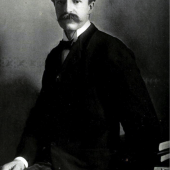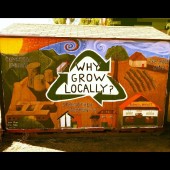Abstract: I was slow in coming to see the desperate need of sustainability education, in part because of a missed opportunity in my field of outdoor adventure education (OAE). Although a burgeoning set of scholars agree that OAE is strategically placed to educate for sustainability, little change within our discipline has occurred. To encourage the transition, this paper has four central aims. First, I contextualize the implications at stake by summarizing recent scientific predictions around climate change. Second, I differentiate sustainable OAE into the sustainability of OAE (e.g., its practices, footprint size, etc.) and OAE for sustainability (e.g., curricula that promotes education about sustainability), noting that despite long-standing petitions to address both, progress has been made in neither. Third, I celebrate, with others, the inherent potential that OAE has to promote sustainability through its educating in natural environs, within living/learning communities, which utilize physical/sensory, affective and intellectual ways of knowing that inspire critical impulses. Fourth, I outline the central changes that need to occur in order to create sustainable OAE. The foremost change needed is for OAE programs to curricularly commit to promoting a sustainability worldview, including values, knowledge, dispositions, and agency related to environmental, social, and economic justice. However, change of this depth will require a revision of OAE course offerings that allow for multiple and prolonged participant engagement over time. Such engagement, then, necessitates that OAE shift its emphasis from remote and sublime landscapes, to programs that not only connect participants to the places in which they reside, but cultivate a care and affection for them. This appreciation can be created through a combination of adventurous learning and microadventures. In sum, “local landscapes, far more often, as a way of life” encapsulate the changes OAE might make in contribution to the global need of sustainability.
Continue Reading
Some scholars of leadership for sustainability argue that more research needs to be done on the ‘who’ of leaders, the core drivers of the ‘what’ and ‘how’ of their decisions and actions. This paper looks at a leading US figure in sustainability, Gifford Pinchot, who led the establishment of the US Forest Service, and who devoted much of his career to conserving the natural world for the good of his fellow citizens. It describes the formation of the ‘who’ of Pinchot as an adult leader through a focus on his early learning environment in order to point to some essential and timeless principles for the education of leaders of sustainability.
Continue Reading
This paper will focus on a qualitative research project that occurred in the fall of 2011 at Chandler Gilbert Community College, which set out to better understand the learning process of experiential education by observing the comments and actions of students interacting in nature-based learning. The research study is based on the premise that students who develop a moral awareness of nature will better understand the core conceptual components of environmental sustainability. The main objective of this research project was to assess the transformational learning of students enrolled in PHI-216 Environmental Ethics courses who engaged in experiential learning to better understand environmental sustainability.
Continue Reading